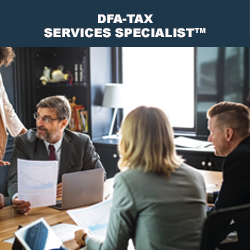Last updated: October 30 2019
Year-End Tax Tips for Employees

Evelyn Jacks
Year-end tax planning is about minimizing taxes for 2019 and setting clients up to save more tax-efficiently in 2020 and beyond. There are several big things to talk about if your client is an employee looking to save some tax dollars, and are potentially a new homeowner as well.
Employees. If an employee’s income will be lower next year (in the case of termination or retirement, for example) plan lump sum payouts like severance to be received over two tax years if possible; this year and next.
Also, as a rule, make sure your clients never overpay taxes at source in 2020. Help them get their tax refund every two weeks by completing the TD1 Tax Returns with precision every December. It can be done electronically now. Go the extra mile and identify the provisions that qualify for withholding tax reductions, like large charitable donations for example, or commission sales expenses. Then file form T1213. Here are four additional, important year-end tax moves for employees:
- Make sure interest is paid on any loans the employer made to the employee before January 30.
- Gather documentation and understand the rules for writing off home office expenses and the often-audited car expenses if the employee is home-based. In the case
 of that dreaded auto log, remember there is a break for those who are diligent in keeping it for at least one full year, which in turn establishes a “base year”. In every year thereafter, your client only needs to keep a log for three continuous months with the most active, as an example. If the business use of the vehicle is within 10% of the base year, no change is required in the prorated expense claim from one year to the next. A Hard copy or an electronic copy will suffice in the case of an audit.
of that dreaded auto log, remember there is a break for those who are diligent in keeping it for at least one full year, which in turn establishes a “base year”. In every year thereafter, your client only needs to keep a log for three continuous months with the most active, as an example. If the business use of the vehicle is within 10% of the base year, no change is required in the prorated expense claim from one year to the next. A Hard copy or an electronic copy will suffice in the case of an audit. - Strategies for stock option benefits are in focus this year as tax rules are expected to change for 2020, when exercised options over $200,000 will no longer qualify for the stock options deduction that results in capital gains treatment. Clients may wish to consider a donations strategy to offset the new taxes. For options held in private corporations, consider the best time to exercise if the firm qualifies as a CCPC and disposition for a capital gains exemption.
- Manage the TFSA in light of upcoming CPP hikes. This is critical. CPP rates are expected to rise as much as 59% for some contributors. Will this squeeze out the case flow to contribute to a TFSA? Help your clients top up any unused contribution room now, and then get into the habit of contributing regularly.
Homeowners. The big news so far this year is that after March 19, 2019 the maximum tax-free withdrawal amount under the RRSP Home Buyer’s Plan was raised from $25,000 to $35,000. This also applies to new home acquisitions by disabled persons, where the 5-year rule for prior home ownership is waived; an important note for your Boomer clients who have long-owned their own homes but now must move to more accessible options due to mobility issues. A Disability Tax Credit Certificate must be signed by a doctor or nurse practitioner however; something best initiated before the busy tax season. The required repayment schedule is still 15 years, or an income inclusion results for the missed payment. There are special rules for separating couples that should be discussed with a tax specialist, too.
Another important incentive introduced in 2019 is the CMHC First Time Homeowner Incentive. It is a “shared equity mortgage” program that provides 5% or 10% of the cost of a newly constructed or existing home, with no interest or principal payable until the house is sold. Those with qualified annual income of $120,000 or less are eligible and their insured mortgage and incentive cannot be more than four times the qualified annual income.
Additional educational resources: Become a DFA-Tax Services Specialist™. With your specialization in personal taxation, you’ll provide sound advice and prepare a broad range of returns—from simple to complex—and then help families accumulate, grow, preserve and transition wealth with tax-efficiency. You’ll offer year-round counsel tailored to your clients’ specific financial goals.
COPYRIGHT OWNED BY KNOWLEDGE BUREAU INC., 2019.
UNAUTHORIZED REPRODUCTION, IN WHOLE OR IN PART, IS PROHIBITED.

